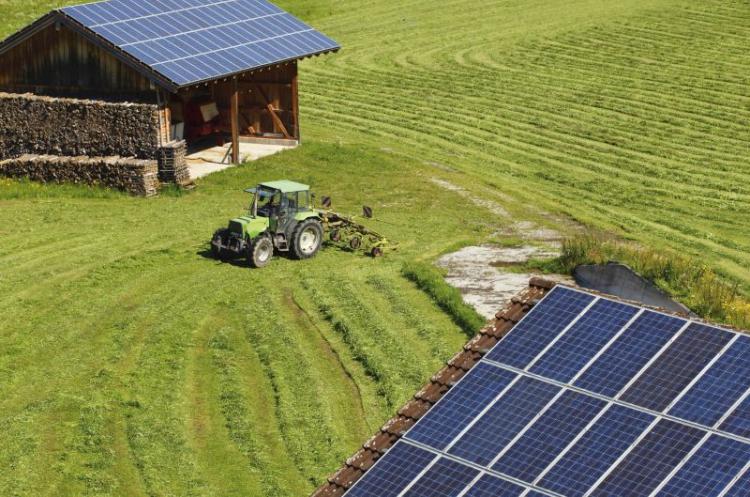
Farmers looking at diversifying in the new year are being encouraged by a rural business expert to consider 'passive' options first.
Spreading risk through diversification is giving farmers new opportunities to grow, figures show.
Total income from diversified activities in 2017/18 was £680m, an 8 percent increase from 2016/17.
Despite this, advice from professionals is not to rush into diversifying and consider ‘passive’ options first.
'Passive' diversification doesn't require much time spent on them, such as renting buildings or renewables.
Hannah Moule, rural chartered surveyor at Moule and Co, will be speaking at next year's Energy and Rural Business Show on this subject.
She explains that there are key considerations to make when diversifying any farm business.
“Don’t rush into diversifying if it is covering up cracks elsewhere.
“Really concentrate on getting your core farming business as good, as efficient and profitable as possible before adding a new enterprise into the mix.
“Consider ‘passive’ options first – things that don’t need much time spent on them, e.g. renting out buildings, renewables.
“Unless it is a passive income, you will be having to put a heap of time, energy and brain power into a successful new business.
“Don’t think they are easy things to do ‘on the side’ – make sure you are in a position, financially and time wise, to invest in your new business,” she says.
Farmers are also asked to consider how much risk and capital they are prepared to invest.
This is determined by current financial and business position, and levels of motivation to diversifying.
Ms Moule says: “Are you prepared to spend £10,000 or £100,000? This will help determine what type of businesses you should invest in.
“Consider your location – when you are diversifying, you may potentially be selling to people.
“You aren’t producing a commodity in grain or beef; your customer is now a human being.
“Then consider your assets, consider your skills and interests and help narrow down what it is that is suitable for you,” she adds.
Also speaking at the event is Mark Russell, partner at land agent Carter Jonas, who will be delivering advice for diversification planning.
He says: “Our advice is to keep it simple and play to your strengths or those of your trusted contacts.
“To grow a new crop, make sure you have support from someone who understands that crop.
“Converting a building for your own diversification is great if you are keen and understand the business. If not, let your local market dictate the building’s use.
“Think laterally – where you own a property, use it as an asset base; many successful farming families have non-farming or off-farm income in the pot,” Mr Russell says.
“Step back with the next generation and think strategically about what you are and why you are doing it - this may seriously change the direction for your business.”
Farmers looking to diversify in 2020 are invited to attend the show, taking place in Peterborough at the East of England Arena on 3 and 4 March.
